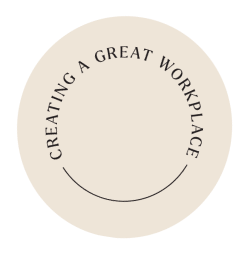An Interview with Matt Holt
I recently had the opportunity to speak with Matt Holt, Vice President of Human Resources at Dot Foods, Inc., who will be attending The Fellowship this November. I think you’ll enjoy reading about how Dot Foods, Inc. is prioritizing culture and what Matt is looking forward to most about The Fellowship.
Q: Matt, what does organizational culture mean to you?
A. I believe organizational culture can mean many things, but at Dot Foods, Inc., it revolves around our core values. We’ve identified five values—family, curiosity, inclusion, humility, and dependability—and believe those connect the 6,500 people that work at Dot. Our values include things like having a sense of family, a sense of curiosity, and other things of that nature. Basically, our values are non-negotiables that we want to instill in all of our employees. We look at those values when we make hiring or promotion decisions. We have distribution centers with different employee groups and demographics in different parts of this country, and we have found that as long as those core values exist in those locations, we can fully and enthusiastically support their cultural differences. Those five core values truly serve as the foundation and the culture flourishes from there.
Q: I was inspired to learn about One Dot. Can you explain to me a little more about what One Dot is, and how it plays an integral role in Dot Foods, Inc. Culture?
A. One Dot is our internal mantra and the foundation of our business strategy. We have a lot of discussions about what connects all 6,500 of us, and having our core values is one way, but another way is how we support each other. One Dot helps reinforce that we have one vision, mission, set of values, and culture. It sets the tone for everything we do across all departments and locations.
One example of how this plays out is in our benefits offering. Many organizations like ours that have different types of employees may provide varying benefits for each type of employee. In contrast, we have one benefits package for all employees. So everyone is on the same health care plan, the same retirement plan, has the same PTO, and more.
Another example is our One Dot strategy which came out of the pandemic. Many organizations pivoted to remote work, but around 5,000 of our employees don’t have a work-from-home option with the nature of their work. So, we created an initiative called “flexibility,” not work from home. Flexibility for a driver can be a “four by four” job. That means a driver can work four days and then be off four days, and that cycle repeats itself in perpetuity. This allows a driver to look out six or twelve months, plan ahead for their family wedding, dance recital, or baseball game, and know if they’re working or not. We want to allow a truck driver as much flexibility as there is for one of our accountants. Work from home doesn’t necessarily connect them, but flexibility does.
To me, both of these examples illustrate the heart of One Dot. It’s an effort to make sure that we’re thinking about all 6,500 employees and our common connection instead of creating silos that can hurt our culture’s long-term success.
Q: I believe that organizational cultures must constantly be nourished. How do you prioritize continually nourishing your organization’s culture?
A. We do research to figure out what prevalent baseline offerings other employers are providing their employees. Those findings become our starting point and we view those as things we need to do just to get our toe in the game. Then, we ensure we continually find ways to nourish our culture from there by providing unique employee experiences. This becomes harder every year because we are growing in size and becoming more spread out, but we still want to prioritize it.
A few examples of how we provide a unique employee experience are offering a no-cost family vacation to each employee every five years, a chaplain program to support employees’ mental health, and access to onsite health clinics. These clinics allow employees and their families easy access to high caliber medical care at a low cost or no cost. This is especially beneficial to employees that live in small rural communities where it’s harder to access high-quality primary care physicians and health care.
Q: What are you most excited about experiencing at The Fellowship this year?
A. Our Culture Committee has focused the last two years on best practices. We are researching what the best employers out there are doing to make their culture special and thinking through actionable ways we can take those findings to better support our culture. This concept of best practices is what we’re hyper-focused on right now, and it’s what we believe we will get from The Fellowship in November!
I’m assuming several organizations will have this “sizing up and and spreading out” issue that is so prevalent at Dot Foods, so I’m excited to hear how others are thinking big but acting small amidst that. Additionally, within our distribution and logistics industry, we’re a pretty progressive organization. But I’m also fully aware that we have a ways to go when we compare ourselves to the best employers across all industries. We’re not afraid to be the junior person at the table, learning from companies or industries that are further along than we are. So, I get excited about the benchmarking, the peer-to-peer learning, and being surrounded by organizations that are ahead in providing a great culture for their people. I’m also looking forward to the takeaways we will bring back home that we can experiment with and implement.
Sincerely,
Ginger Hardage
P.s. There are still a few remaining spots available for The Fellowship. Learn more here and claim your spot today!





